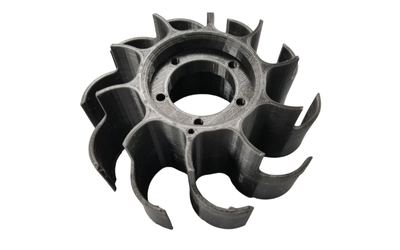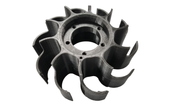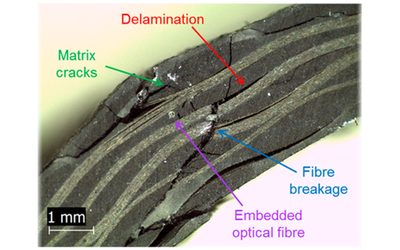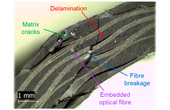Forged Molding Compound
Flexible carbon molded sheets for manufacturing intricate and complex geometrical designs.
Technical Specifications
| Product Type | Forged Molding Compounds |
| Reinforcement | Carbon Fiber CF or rCF |
| Areal Weight | 1850 to 3100 g/m3 |
| Density Range | 1.46 to 1.51 gm/cm3 |
| Applications | Automotive, aerospace parts manufacturing, sports gear, marine industry, etc. |
Overview
Carbon Fiber Forged Molding Compound (FMC) is a carbon composite material developed by Mitsubishi Chemical Group. It’s a sheet-type intermediate material developed from cut high-strength carbon fiber. The material offers robust resistance, moldable by using various techniques. So, it easily supports existing molding and manufacturing systems. It features a random arrangement of short carbon fibers to enhance fluidity and flexibility. Hence, it can be used for molding and designing a variety of complex geometrical shapes, and intricate designs like ribs and bosses, etc. The material is best-suited for mass production of industrial parts especially for the automotive sector.
Improved Operational Efficiency and Cost Optimization
Forged Molding Compounds are available in four different types such as:
STR120N131
STR130U127
STN130N127
STN130U118
Each material features varying elastic and thermal properties. The tensile strength ranges from 185 to 320 MPa which makes these materials a suitable alternative for heavier metals like aluminum. Compared to aluminum, the FMC weighs 30% lighter. Therefore, it’s a go-to option for automotive manufacturing.
Also, due to higher flexibility, FMC can produce intricate and complex geometrical designs quicker and more accurately. So, it leads to reduced cycling time which optimizes production and operational costs for designers. The production process also allows parts to be machined after molding, so it also allows for customization and offers design flexibility for industrial-grade parts manufacturing processes
Immense Applications and Compatibility with Versatile Molding Techniques
The Forged Molding Compound is ideal for high-scale production compared to conventional carbon fiber processing methods. It uses press molding techniques which is more efficient than autoclave and oven molding techniques. The production mechanism makes it a useful option for large-scale automotive part manufacturing.
FMC materials are also suited for sports gear and athletic equipment. It offers exceptional tensile strength, so it can also replace aluminum structures. Since the material is made from randomly dispersed carbon fiber that is impregnated in a thermoset resin, it’s lighter but sturdier than aluminum structures featuring a better tensile strength and specific modulus.
The finished material contains 50% to 60% weight of the carbon fiber. Based on the material requirement, the Carbon Fiber FMC is available in different mechanical performance levels. The selection varies according to the fiber type and fiber content. Moreover, the multiple resin options include vinyl ester and epoxy. So, depending on the required thermal resistance, surface properties, molding process and cycling time, manufacturers can select a suitable material combination for the desired application.









